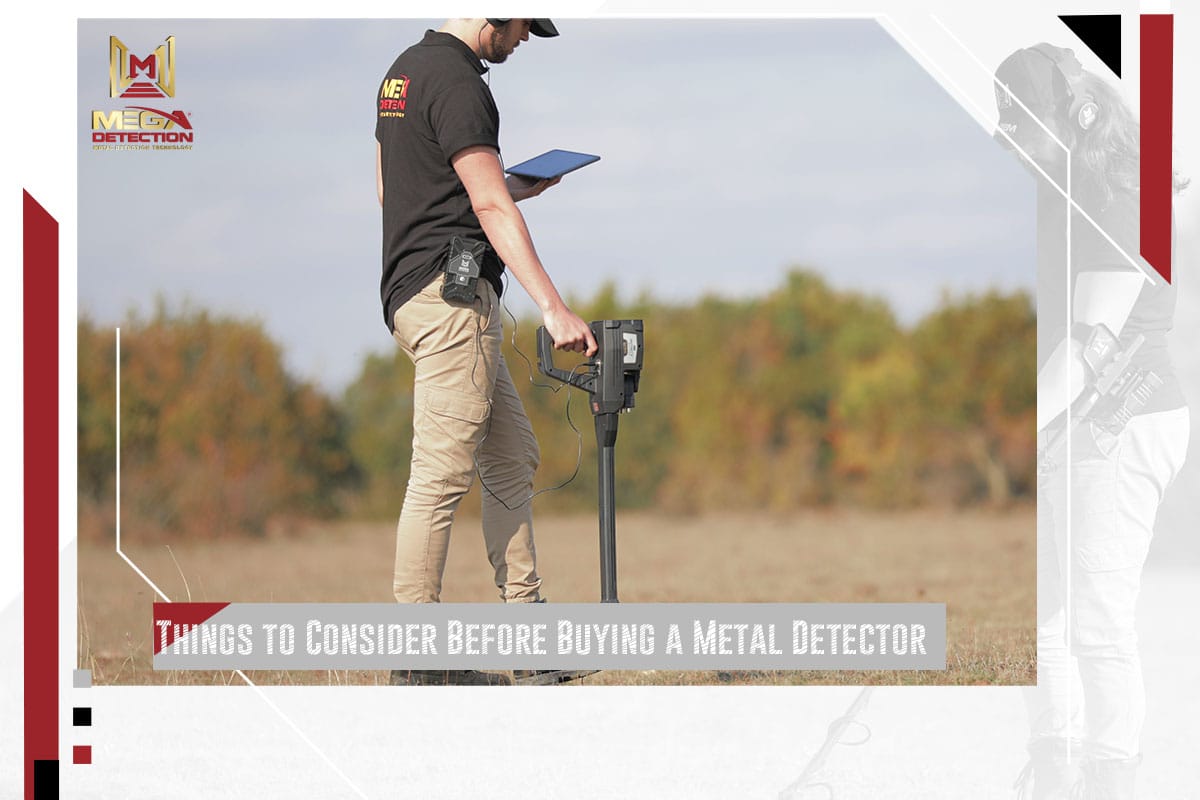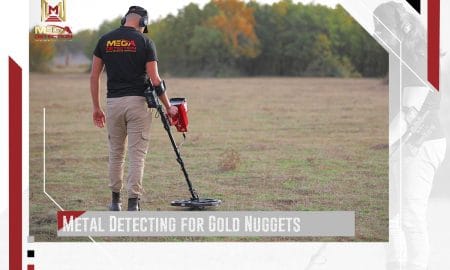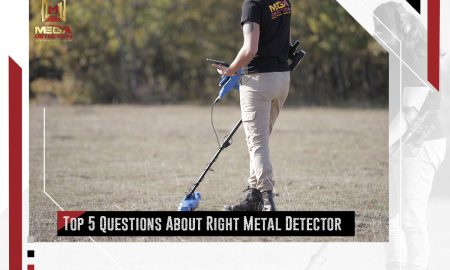Things to Consider Before Buying a Metal Detector
How Metal Detectors Work
Metal detectors work by transmitting an electromagnetic field from the search coil into the ground. Any metal objects (targets) within the electromagnetic field will become energised and retransmit an electromagnetic field of their own. The detector’s search coil receives the retransmitted field and alerts the user by producing a target response. metal detectors are capable of discriminating between different target types and can be set to ignore unwanted targets.
The basic concept of how a metal detector works is actually quite simple. It sends out an electromagnetic signal, and if anything bounces back, the detector measures its estimated size and structure. Radar works in a similar way. Bats do the same thing with sound to identify obstacles and food.
The tricky bit is interpreting the reflected signal accurately, so you don’t spend all day digging up rusty soda cans or bottle caps. There are a number of specific features to consider.
Coil
Generally speaking, the larger the coil, the deeper the electromagnetic signal will penetrate. Our best metal detector for kids has a 6.5-inch coil and can pick out coins at around 4 inches deep. Our top pick has an 11-inch coil, and will reach down 12 inches or more.
Also check if the coil is waterproof. Ideally it should be IP (Ingress Protection) rated, but some manufacturers do not use this independent testing because of the cost involved. Some metal detectors are described as weatherproof, but this offers no specific guarantee, and it’s unlikely they could be submerged without damage.
Frequency and Sensitivity
Most consumer metal detectors use VLF (very low frequency) transmitters. The frequency available might be anywhere from 5 kHz (kilohertz) to 40 kHz, with 5 to 15 kHz considered the sweet spot for consumer models. Most machines are fixed, though some offer multiple settings. The latter allows sensitivity to be adjusted to suit conditions, and the materials or items being searched for.
A low frequency is good for finding conductive metals like silver (and thus some jewelry), and has good depth penetration. However, because not many electromagnetic waves are transmitted it isn’t so good for small items. Higher frequencies are better for gold, iron, and coins, but the waves often don’t go as deep.
There can also be problems with interference from minerals in the ground. A feature called Ground Balance is often incorporated to solve this problem. Many metal detectors also offer multiple modes like beach, park, or field, for example, to help compensate for ground conditions.
Discrimination
It’s nice to be able to tell the difference between junk and treasure before going through the effort of digging it up. When metal detecting, this is called discrimination. All metal detectors try to help with identification to some extent, and provide controls to narrow down the type of target. This is often called “notch discrimination” or “notching out,” which basically tells the metal detector not to look for items within certain frequency ranges.
There is always a visual display of some kind, and usually an audio signal (called threshold or threshold pitch). The best metal detectors also offer a target ID, and estimate target volume (size).
Weight and Ergonomics
Handheld metal detectors are all reasonably light, but most people will notice a big difference between a 2-pound model and a 4-pound machine if it’s being used all day.
Some handles are padded, some not. A forearm/elbow support is usually provided. Shaft length is often adjustable to accommodate people of different heights, but for those who fall outside the ‘average’ this is another feature worth checking.
Batteries
All metal detectors use batteries. They can be as simple as a couple of AA or 9-volt cells (often not included), or they can be sealed rechargeable units. While the latter will usually last several years, replacement may mean returning it to the manufacturer to avoid damaging waterproof seals. When you’re ready to upgrade, find out how to recycle electronics.
Frequently Asked Question About Metal Detector
Do you need a license to use a metal detector?
You do not need a license to own a metal detector, but you do need the landowner’s permission to use one on private property. On state property, national parks, or other public land, a permit is usually required. Some states do not allow metal detecting on their properties. It’s important to check with local authorities or you could face a fine, and have your metal detector confiscated.
How much do metal detectors cost?
What a metal detector costs depends very much on the performance expected. Metal detectors for kids start at around $50, and metal detectors for beginners can be little more than $100. Metal detecting enthusiasts can pay anywhere from a few hundred to several thousand dollars. We’ve recommended a range of machines that offer excellent value.
How deep do most metal detectors go?
How deep most metal detectors go depends on a number of factors discussed above, such as the capabilities of the machine, soil conditions, target size and material, etc. Good budget metal detectors might go 4 to 8 inches, whereas midrange machines can reach 14 to 16 inches. Professional metal detectors can reach 12 feet or more, but these are very expensive.
How can I increase the range of my metal detector?
Increasing the range of your metal detector can be done in a number of ways.
First and foremost, make sure you understand the functions of your device by reading the manufacturer’s manual carefully.
— Range can drop as batteries lose power, so making sure they are fully charged is a good starting point.
— Increasing sensitivity and/or reducing discrimination can also help, though you may get more false positives.
— If your metal detector can be upgraded to a larger coil, that can also increase range.
— If these options don’t provide the performance you need it may be necessary to move up to a more powerful device.
Related Articles
- Gold Detectors 2022
- VLF Metal Detector
- 3D Metal Detectors || All You Need To Know
- Pulse Induction Metal Detector
- Metal Detector Prices , How Much Does a Metal Detector Cost?
- How to Choose the Best Gold Detectors 2022
- How Does a Metal Detector Work?
- 3D Gold Detector











Leave a Reply